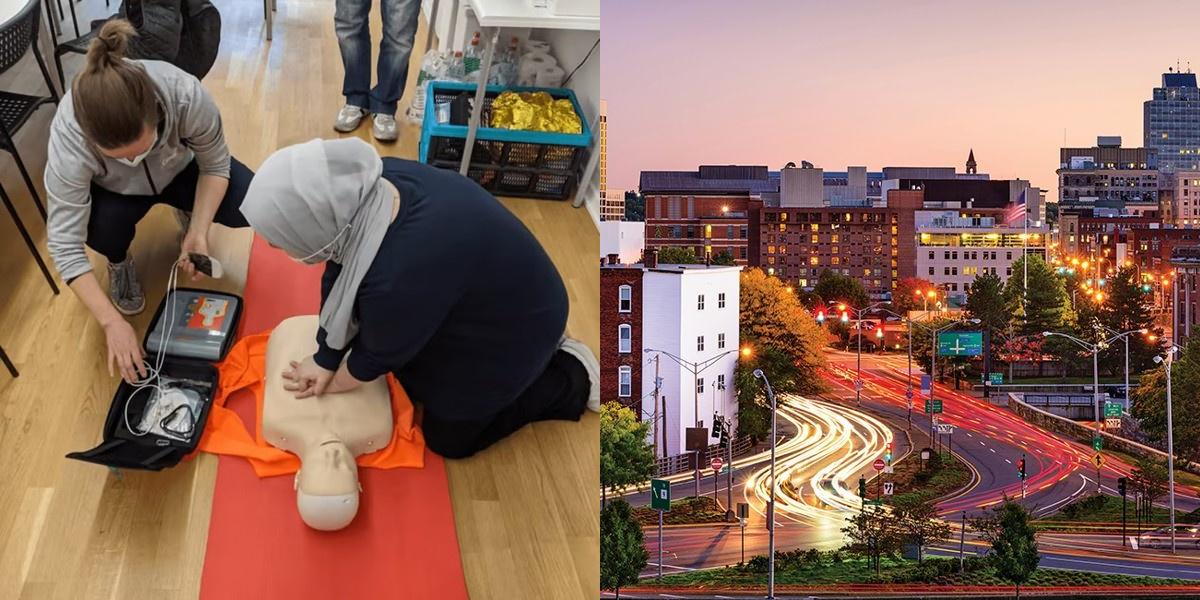How to Become a Paramedic in Massachusetts (2025)

If you're a career-changer or aspiring healthcare worker in Massachusetts, becoming a paramedic offers a fast path into a high-impact medical role. Paramedic training programs take 1–2 years to complete and prepare you to deliver life-saving care in emergency situations. According to the U.S. Bureau of Labor Statistics (BLS), paramedics in Massachusetts earn an average salary of $68,790 per year ($33.07/hour), with a 5% job growth projected from 2024 to 2034.
Are There Online or Hybrid Paramedic Programs in Massachusetts?
Yes. Many paramedic schools in Massachusetts offer hybrid or blended programs, ideal for working adults or parents.
Hybrid programs include:
- Online coursework: Complete theory-based classes remotely
- In-person labs and clinicals: Conducted at local hospitals or EMS sites
You can find hybrid options easily through Dreambound’s program search.
Certification Exams and Additional Credentials
To legally work as a paramedic in Massachusetts, you must:
- Pass the NREMT Paramedic Exams (Cognitive + Psychomotor)
- Obtain Massachusetts OEMS Certification
Many paramedics also earn additional credentials to specialize or advance:
- ACLS (Advanced Cardiac Life Support)
- PALS (Pediatric Advanced Life Support)
- PHTLS (Prehospital Trauma Life Support)
These certifications improve job competitiveness and expand your career opportunities.
Job Outlook for Paramedics in Massachusetts
Massachusetts has a steady demand for paramedics, driven by population density and healthcare expansion. Paramedics work in a variety of high-intensity environments:
- 911 ambulance and rescue services
- Fire departments and hospitals
- Air medical transport and event EMS
Top Employers:
- Boston EMS
- Brewster Ambulance Service
- Cataldo Ambulance Service
- UMass Memorial Medical Center
- American Medical Response (AMR)
Explore current job openings on MyNextMove.
Career Advancement Opportunities
Certified paramedics can move into specialized or higher-paying roles such as:
- Flight Paramedic – Requires flight training and experience
- Tactical or Military EMS
- Emergency Department Technician
- EMS Supervisor or Instructor
- Bridge Programs: Transition to RN or Physician Assistant roles
Dreambound also features career guides for nursing, health information technology, and home health aide training.
Frequently Asked Questions
How long does it take to become a paramedic in Massachusetts?
It takes 12 to 24 months, depending on the program type and whether you study full-time or part-time. Fast-track certificate programs may take closer to 12 months, while associate degrees may require 18–24 months. Most programs combine:
- 500+ hours of classroom work
- 250–500 hours of clinical experience
- 250+ hours of field internships
How much do paramedics make in Massachusetts?
Paramedics earn an average of $68,790 per year ($33.07 per hour), per BLS (May 2024).
What is the quickest way to become a paramedic?
Enroll in a 12-month certificate program and pass the NREMT Paramedic Exam.
Who is more qualified, an EMT or a paramedic?
Paramedics are more advanced than EMTs, with greater training in medications, airway management, and cardiac care.
Final Thoughts
Becoming a paramedic in Massachusetts opens the door to an essential, high-impact healthcare career. With flexible program options, competitive salaries, and room to grow, paramedicine offers a meaningful way to serve your community.
Take the next step. Search paramedic programs near you and get started today.
Wondering if there's more? Perhaps these other articles will be more helpful if this one isn't exactly what you're after:

Pia Yapjoco is part of the school growth and sales team at Dreambound. She helps facilitate school partnerships that expand educational opportunities for aspiring students in allied health and other trades. Beyond work, she curates her pup's Instagram, hunts for hidden coffee gems, and escapes into cozy gaming.



